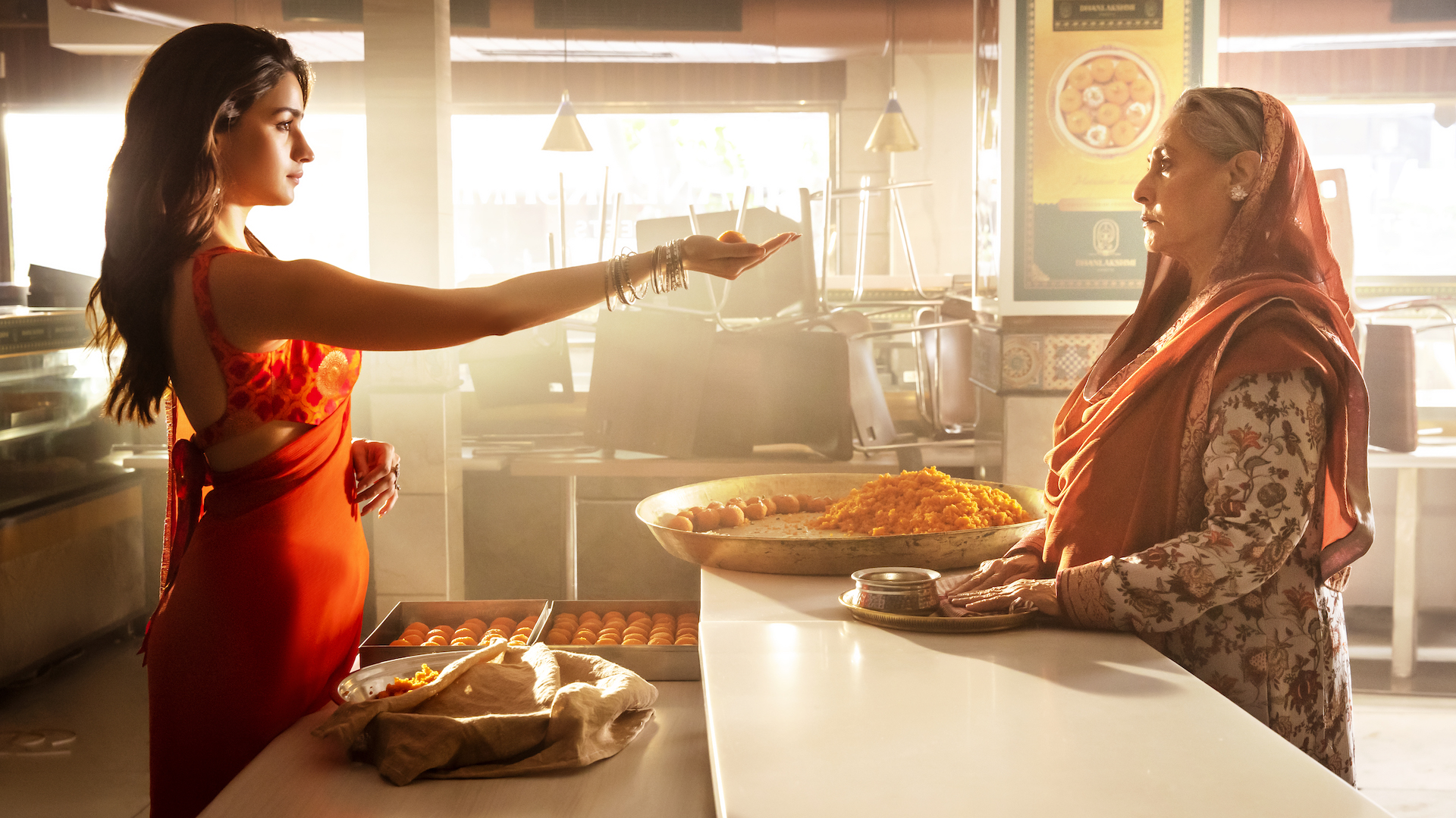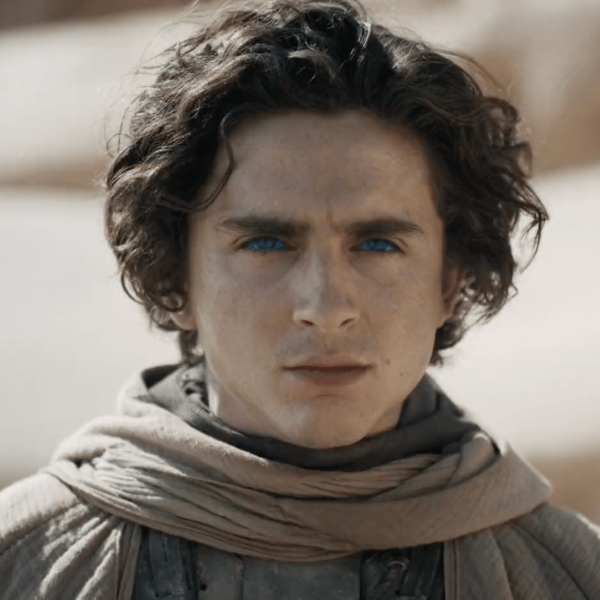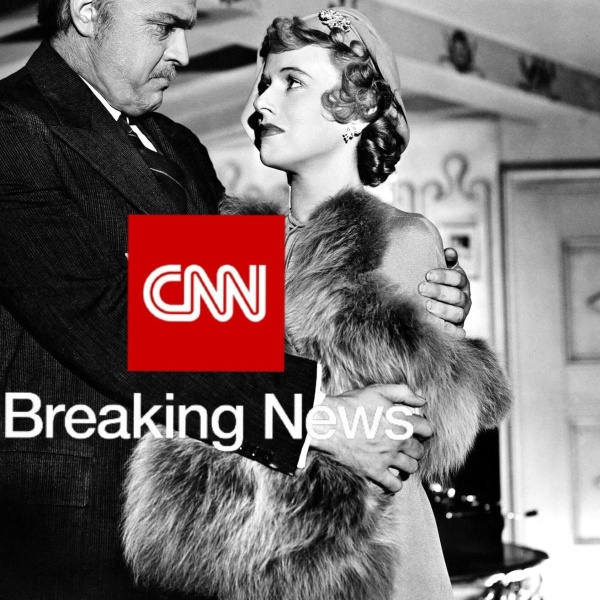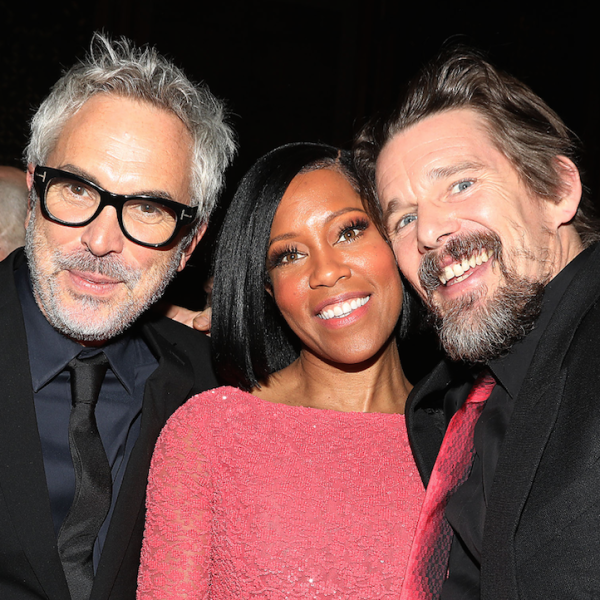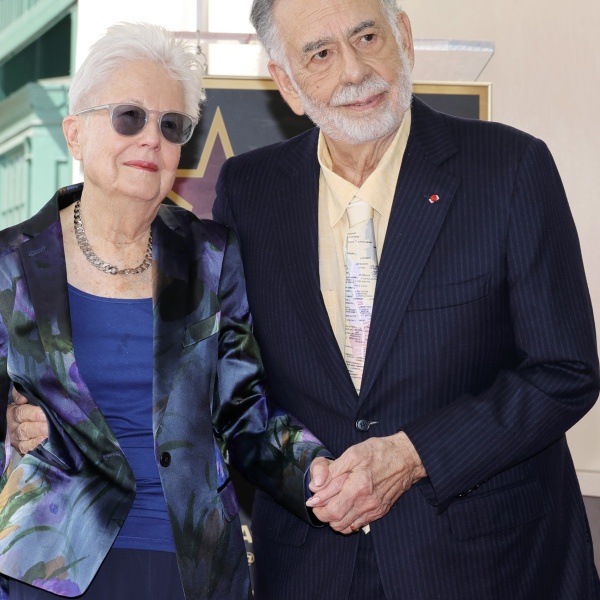Karan Johar is one of those directors whose name is an adjective. Throughout his 25-year career as a filmmaker, perhaps one of the harshest critiques he’s read of his work is “That’s very Karan Johar.”
“I feel like I read, ‘Oh, this is so dramatic, but that’s very Karan Johar. … ‘Oh, this is so melodramatic. That’s so very Karan Johar.’ … ‘This is a world that you can’t believe, but that’s very Karan Johar,’” Johar told IndieWire during a recent Zoom interview on the heels of his latest directorial release, “Rocky Aur Rani Kii Prem Kahaani.” “I’ve read, of course, a lot of great things as well, and I’m very grateful for that, but I’ve also had some really nasty things about my filmmaking. You get slotted into a genre, right?”
Johar, the son of celebrated director and producer Yash Johar, made his screenwriting and directorial debut with 1997’s “Kuch Kuch Hota Hai,” a millennial staple (along with 2001’s “Kabhi Khushi Kabhie Gham” and 2004’s “Kal Ho Naa Ho,” written by Johar and directed by Nikhil Advani). After his father’s passing, Johar took over as head of Dharma Productions, where he continued to write, direct, and produce while remaining ubiquitous throughout the Hindi film industry; designing costumes for various films outside the Dharma banner, judging reality competitions, playing the villain in Anurag Kashyap’s “Bombay Velvet,” and hosting over 150 episodes of his talk show “Koffee with Karan.”
“Rocky Aur Rani,” released July 28, is Johar’s return to the big screen as a director after a seven-year gap — his longest ever. It’s also the first time he can ever recall an outpouring of both critical acclaim and audience affection.
“I’m somebody, unlike [some] filmmakers, I understand the importance of critics. I understand that they contribute to the the evolution of pop culture in the mainstream,” Johar said. “I told my marketing team: ‘Don’t send me any negative reviews,’ so I thought my inbox won’t be flooded that morning [the film opened]. But when I surfaced and, one after the other, I was reading all the positive reviews, I was like ‘I don’t know what I’ve done.’ I’m not sure what exactly has resonated. Something good has happened, and I should accept it with gratitude and not expect it again.”
Johar spoke with IndieWire (at 7:25 a.m. EDT, for which he had sympathy) about the process and performance of “RRKPK,” his career thus far, and how Indian and Western cinema can learn from each other.
This interview has been edited for length and clarity.
IndieWire: What does your writing process look like when you collaborate with multiple people?
Karan Johar: This was a first for me. I had never directed a film which had so many writers. It was a germ of a story that I had, that I shared with Shashank Khaitan, who is a filmmaker himself, and he wrote his version of the story, and Sumit Roy who was writing “Takht” with me at the time, a film that I was directing and I had to stop. And then we all sat together and jammed. I brought Ishita [Moitra] in to write dialogue, which she contributed so tremendously to the screenplay as well.
So it was several group meetings, individual meetings, bringing all the energies together — I know I’m ready for a series now because in a sense, I’ve already worked in a writers room for a film, and I recommend a writers room even for feature films. There’s a great give-and-take, there’s some clashes, there are different ideologies, and eventually all that argument and disapprovals, approvals, all land up if you have a stable mind leading it — which I’m hoping is my mind, which was stable enough to kind of govern that process in a way that we could take it forward.
Also Somen Mishra, who’s the head of our project development team, really kind of nurtured this process. He’s done that with various writers room on series, so he helped me and held my hand through the process — so something came out of all this madness.
I watched your interview with Anu Chopra and you told her that your films usually get mixed reviews or polarizing reception. Why do you think that that is, and why do you think it shifted this time?
I don’t know. I have no clue. Every other film of mine which had polarized opinions and average, above average, sometimes good reviews — it’s never been a unanimous feeling from the critics. I do know how critical it is to have critics as well. Defiant and defensive filmmakers wouldn’t agree, but I think it’s important to be truthful to yourself. And so I have read every review of, not just this film, but of every film of mine. Agree/disagree is secondary, but I have read, absorbed opinions, taken so much within. This time around, … it’s very rare that you get critical and commercial success and the both of them coexist. It doesn’t happen; in my career it hasn’t happened at all. This is a first.
Is there a review that you still remember that has stuck with you?
The thing is, I also feel like I have paid the price of perception. Even when I did credible work in an anthology, with “Lust Stories” and “Bombay Talkies,” I felt that grudgingly things were being said positively. Like, “OK, he managed this one, but if he can do this then why does he do that?” There are lines that reviews have opened [with]: “What else can you expect from a Karan Johar film but this?”
Those are the lines that have sometimes felt harsh, and [whether] I deserved it or not is secondary, but sometimes we’re all creative artists, right? You get hurt. You get upset, we are vulnerable. Reading a bad review is painful, especially the ones that can be really negative and nasty. I’m good with criticism, I truly am. I’m good when reviews are balanced and give both perspectives … but I’m also reading and absorbing everything, so I know too much.
I’ve been told by filmmakers: “Why are you reading all the reviews?” If I don’t read what people have to say, how am I going to grow as a filmmaker? So as I said, I seek critical validation and I’m not going to lie about that. And when you get it, and this is a first for me, I’m feeling like a debut filmmaker all over again.
I love that this movie is very progressive and modern without sacrificing its Indian identity, which I think can be really tempting, especially in the commercial space. How conscious was that decision artistically, and how did you approach it?
Artistically not a problem, because it’s in my DNA to do mainstream and to have fun with it; song, dance, lip sync, scale, grandeur, costumes — all that is what I love and believe in, what I grew up on. The conscious effort was to balance all of that and bring in an updated syntax. I can’t possibly do “K3G” today and get away with it. Right? I have to talk about things that are being talked about.
There are elements in “Kabhi Khushi Kabhie Gham” — there’s a scene where when her father passes away, he comes and marries her, like full male savior complex, which was passed off in that time because those were different times. “Kuch Kuch Hota Hai,” while it’s nostalgic and beautiful, and my entire career is based on on the success of that film — the gender politics today would not be appreciated. So it was important that when I make a commercial mainstream film today, I don’t make those errors that I did subconsciously, not knowing anything.
Much like Rocky’s monologue about the cancel culture in “Rocky Aur Rani Kii Prem Kahaani,” where he says “I grew up being told these things,” that’s what I grew up being told, and seeing those things. I didn’t know that chasing someone was stalking; I thought that was romance. That was what was taught to me to cinema. Today I know better. So that’s why it was a conscious decision to make the same word, create the same scale, but definitely update the verbal syntax of the film.

What’s something Indian cinema can learn from the West and vice versa?
We can learn efficiency. We can learn discipline, we can learn timelines, we can learn writer empowerment — currently, of course, even more so. We can learn commitment to craft, we can learn a lot. What they can learn from us is to not hold back emotionally — which is happening. I see the reason tone of films [have] emotions on their sleeves as well. We are all about full-blown emotions. We don’t hold back, and I think sometimes the West in their storytelling do hold back. They they’re too subtle and they got too sharp at times.
They hold back emotional energies and I’m like, perhaps you should watch our films. That’s why they went so crazy about “RRR,” because [S.S.] Rajamouli doesn’t hold back. He had emotions that were full-blown, and they all love it. So I’m like, if you can love the genius of Rajamouli and the brilliance of “RRR,” then you’ve got to do it yourself.
What is your biggest regret creatively?
The time between movies. I take too long between films. It’s now come up to seven years, that’s just stupid and ridiculous. The other, and I’m being very honest, is that I never learned the grammar of cinema. I just worked as an assistant as an A.D. on a film, and then I went straight on to a set. I wish I had gone to film school. I wish I learned the grammar, just the basics, because I started learning on the job and that takes a while. I believe my craft as a filmmaker needs to get stronger, so I depend a lot on my cinematographers for that.
But I took too long to get where I am today. I should have been educated in cinema much more. The only cinema education I had was watching the films that I grew up on. I wish I had gone to a legit film school and learn the grammar, I didn’t. So, yes, there there will be people who say the best kind of experience is the one on set. On one hand, I do agree with that, but I grew up with no information at all about the details of technology and the optics of a camera. I tell filmmakers that: learn first, and then come on set.
I noticed that a lot of your work has themes of death from “Kuch Kuch Hota Hai,” “Ae Dil Hai Mushkil,” and then the final act of “Rocku Aur Rani.” Without getting too personal, is there something that brings you back to that continuously?
You know my biggest fear is losing loved ones. It was my fear, and I lost my father really early. I think I shouldn’t fear it because when it happened it was almost like negative manifestation, like you fear something and it happens. I’m a single child, I have no siblings. I only had Mum and Dad. We don’t have very large extended families. It’s just three of us and lots of friends who are family. So now I really fear the loss of a loved one. I think somewhere subliminally it’s such a fear that it always comes through in the writing. There’s always a loved one that is lost at a pivotal part of the film. It could be called a device, but I think for me it’s always very personal.

How did being a parent affect your approach to this story versus previous work, especially “K3G”?
When I had my twins, I found myself very angry at the things that were being said around them. Like “Oh Yash,” my son, “Yash, that’s pink. That’s for Roohi.” And “Roohi, that’s blue. That’s for Yash.” That’s the first thing I told everyone at home. I’m like, both can wear blue, both can wear pink, both can do what the hell they want. Please don’t dictate them by color — this is how I grew up. I grew up being told that if I were pink, I’d be a girl. Or if I went to a dance class, only girls do that. Then there were things like “Don’t cry like a girl.” These are all things as a parent, I didn’t want those things to be said around my twins.
So some of that consciousness, that political correctness, had transferred into my parenting and making me say that to everybody in the house so no one would say those things. All that I think has also helped some of the communication in “Rocky Aur Rani.” I’m a parent today and I understand the value system of raising a child so much more. And I know how important the upbringing of a child is, in eventually their character endgame. I really believe that what you say in the impressionable years of a child will nurture them to the to being the human being they will become, which is why I felt like this film needed to address so many things, but in its own way.
I would be remiss if I did not bring up the incredible love story between Dharmendra and Shabana Azmi in this movie. Tell me about crafting that storyline and spotlighting particularly Shabanaji, because heroines, especially in Hindi film, don’t get that treatment after they get married or turn 30.
That was an unrequited love story. She says it in the beginning that those seven days were the most special days of her life, and all the love she got in those seven days she can live by. That was what I wanted to have Jamini (Azmi) and Kanwal (Dharmendra), to have this immortal feeling of love. That’s why when they meet, it’s like the time has just stopped for them and they go back to ’78 and even share a kiss. She tells Rani that her own husband was abusive, and she feels bad that she didn’t address it them and she kind of made her son suffer as a result. She didn’t want to break two homes at that time, because that was the way people thought in the ’70s, but two things I feel: love should be not age-bound at all. You’re completely allowed to fall in love in any age.
You’re also completely allowed to to express if you are in an unhappy marriage, and sometimes there are no reasons for it. When I made “Kabhi Alvida Na Kehna,” it was question that “Why does Rani [Mukherji] not love Abhishek [Bachchan]? He’s such a good husband. He loves her so much. He gives her all the love and she still cheated on him.” Sometimes you can’t explain it. Sometimes you can’t explain why you don’t feel the love. Just because he’s not cheating on her doesn’t mean that she should love him. That’s also kind of a patriarchal way of looking at love.
I’m going back to just feeling self-love when I create characters like Jamini and Kanwal, because it’s important that you acknowledge how important love is and how it should define your movement in life. While you have to care about family, it’s very critical, you have to also care about yourself. That love story will always remain special to me because it speaks volumes and will speak volumes to so many people that let go of their love for the sake of their family.
You also spoke to Anu about the anxiety that you were feeling leading up to this movie. We are now a week in since release — you’ve got new productions coming out and all of that — so how do you feel moving forward?
I am no longer anxious, I was very anxious about my own directorial film. The stress is gone, the love came in and took care of the stress. The abundance of love that that poured in really helped that. And now I’m going back to the table, back to my job, back to the next release, which will be end of year, and full focus on that. I can live with this feeling for a week or two, but I have to get out of it. Eventually — I can’t sit on a laurel, I’ll have to move on.
“Rocky Aur Rani Kii Prem Kahaani” is now playing in select theaters.
